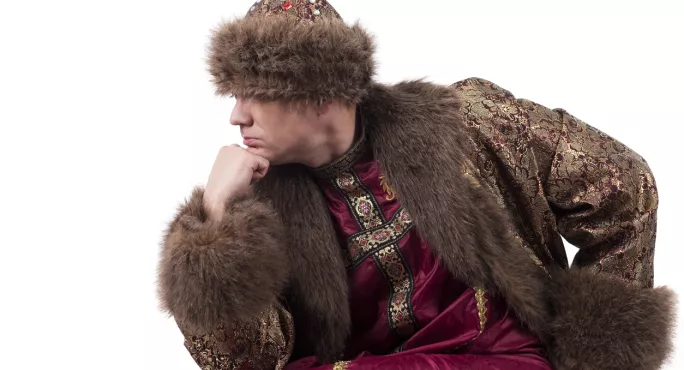I worry about the number of “tsars” now roaming around the educational realm. We now have a new “school catch-up tsar”, a “children’s tsar” and a “youth mental health tsar” - not to mention the once-untouchable “school behaviour tsar”, former night-club bouncer Tom Bennett.
We can only speculate on how Bennett may now be planning his response to the rise of all these upstart tsars on his manor.
History suggests that, when two or more people have laid claim to the role of tsar, things don’t resolve themselves amicably. There were no job-shares between the Romanovs and rival nobility, no part-times, no calm and mature dividing up of the job description over a mug of coffee.
Tsars from history
Consider, for instance, the brutal beheadings and shootings of three successive pretenders to the Russian Tsarist throne, False Dmitry the First, False Dmitry the Second and False Dmitry the Third. (Dmitry 3 was the most forgettable in the False Dmitry Netflix trilogy by all accounts, as is usual.) The repeated bloody endings there serve as a chill warning about what happens when there are two or more rival tsars on the scene.
And even if the current situation doesn’t lead to a bloodbath - with the behaviour tsar and his heavies not, after all, brutally resuming absolute supremacy in some mission they would call “Be’ave!” - everyone still needs to stop calling them “tsars”. I am sure the tsars themselves would agree.
How can such a name help their worthwhile intentions, when the only tsars most people ever learn about when at school are either murderous tyrants or hapless failures?
Some of the deeds of Ivan the Terrible, for instance, make our Gavin the Terrible look like an absolute dithering saint in comparison. No empty gestures involving whips and tarantulas for Ivan. He was for real. He would lay waste to towns and murder the inhabitants. He even killed his own son after losing his temper. Again.
Though Ivan did have a soft, art-loving centre. He is said to have rewarded the architects of St Basil’s Cathedral with a ceremonial gouging of their eyes, so that nothing so exquisite could ever be designed again.
A leader who lost credibility in a crisis
And the only other tsar commonly covered in school is Tsar Nicholas II - which means that everyone is aware of what happened to him and his poor family during the Russian revolution. He was a leader who lost credibility in a crisis, after listening too much to some reckless wild-eyed figure who gained undue influence over him. Just imagine.
In fairness, a few tsars (including Nicholas) did their bit for the development of national literacy and education. Peter the Great had previously made it law for the nobility and for royal staff to educate and test their children. Catherine the Great went even further and attempted to establish (though with limited success) a national schools system.
The trouble is that very few people readily associate tsars with educational support or with any positive attributes at all. They just think of remote autocrats who mistook themselves for God and, ultimately, of calamitous failure, death and revolution.
So as we now perhaps begin our own long-overdue revolution in school education, one of the first things that surely needs to go is the idea of a “tsar”. History would be repeating itself, but less bloodily this time.
Perhaps what we need is a tsar tsar, with a remit to abolish the the use of tsars.
Stephen Petty is head of humanities at Lord Williams’s School in Thame, Oxfordshire

